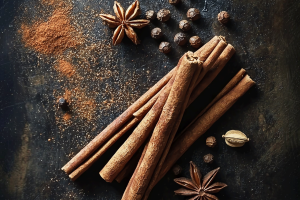We all know how harmful prolonged exposure to the sun can be for our skin. That's why we often rely on sunscreen and umbrellas to shield our skin from harmful UV rays. But did you know that diet plays a crucial role in protecting our skin too?
In fact, certain foods can help our skin fight off the damage caused by the sun. Foods rich in antioxidants not only protect the body but also help fight acne and excess oil production. So, let's dive into eight foods that can help protect our skin from the sun's harmful rays.
1. Dark-Colored Fruits
According to Dr. Roger Adams, a nutritionist and founder of EatRightFitness.com, the darker the color of the fruit, the more antioxidants it contains. Antioxidants combat free radicals that are triggered by sun exposure, which can damage cells and alter their function or appearance. Some studies even link free radicals to cancer. Dr. Adams suggests including fruits like berries, plums, cherries, and other dark-colored fruits in your diet. These foods are packed with antioxidants that can slow down the aging process of skin cells and other body cells, helping to fight off the harmful effects of sun exposure.
2. Dark Vegetables
Just like fruits, dark vegetables are also rich in antioxidants that can protect the body from the damage caused by free radicals. Dr. Adams recommends incorporating foods like eggplant (especially with the skin), black beans, red beans, artichokes, and red, orange, and yellow bell peppers into our weekly meals. These vegetables are not only high in antioxidants but also provide vitamin C, which is crucial for collagen production. Amy Gorin mentions that lycopene, an antioxidant found in tomatoes, helps prevent UV damage and wrinkles caused by sun exposure.
3. Olive Oil
Olive oil is packed with healthy unsaturated fats, which can reduce the risk of freckles, wrinkles, and skin damage.In fact, a Japanese study published in the journal Cancer Research found that using unrefined olive oil as a sunscreen can repair damaged skin and even prevent melanoma and other types of skin cancer. Olive oil has been used as a moisturizer for centuries, so it's a good idea to apply a small amount of olive oil to your skin before or after sun exposure.
4. Nuts
Nuts are an excellent source of essential fatty acids and unsaturated fats that help improve skin elasticity, maintain healthy cell membranes, and prevent dry skin. Dr. Adams explains that the more elastic the cell membrane of our skin cells, the healthier and more hydrated our skin becomes. Additionally, these healthy fats act as antioxidants, fighting off the free radicals produced by sun exposure. It's recommended to eat a few servings of nuts each week, such as walnuts, almonds, and fatty fish like salmon, mackerel, and tuna. You can also add flaxseed oil or ground flaxseeds to your diet for an extra boost of antioxidants.
5. Green Tea
Green tea is rich in EGCG (epigallocatechin-3-gallate), a powerful antioxidant that fights off the free radicals caused by sun exposure, reduces inflammation, and even has anti-cancer properties. Nutrition expert Frances Largeman-Roth states that the polyphenols found in green tea have been clinically proven to combat UV damage. So, sipping on a cup of green tea can be a great way to protect your skin from sunburn and premature aging.
6. Yogurt
Yogurt is beneficial for almost every aspect of your body, from improving digestion to helping maintain your waistline. But did you know that yogurt can also help protect your skin from the sun? Amy Gorin mentions that the probiotics in Greek yogurt, as well as other foods like raw sauerkraut, can assist in repairing UV damage to the skin. She recommends combining Greek yogurt with fruits or mixing it into your veggies for a tasty, skin-friendly snack.
7. Coffee
Coffee isn't just for waking you up in the morning – it can also protect your skin from UVB rays, which are responsible for skin cancer. In fact, studies suggest that drinking coffee may reduce the risk of melanoma, one of the deadliest forms of skin cancer. This recommendation aligns with the World Health Organization's findings, which suggest that consuming three to five cups of coffee per day (around 400 milligrams of caffeine) can also lower the risk of cardiovascular diseases and type 2 diabetes.
8. Kiwi
Kiwi is not only a rich source of vitamins and minerals, but it also helps combat free radicals formed by sun exposure. "Kiwi and other fruits rich in vitamin C are essential nutrients that not only nourish the body but also play a crucial role in protecting the skin from the harmful effects of the sun," says Dr. Adams.
In conclusion, it's clear that our diet plays a major role in protecting our skin from the sun's harmful rays. By including these eight foods in our daily meals, we can give our skin the support it needs to fight off sun damage, wrinkles, and other skin issues. Of course, always remember to use sunscreen, wear protective clothing, and practice safe sun habits. Eating these foods, along with taking good care of our skin, can help keep us looking youthful and radiant. So, Lykkers, are you ready to make your diet work for your skin?


